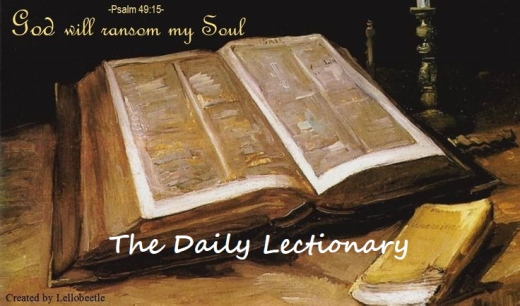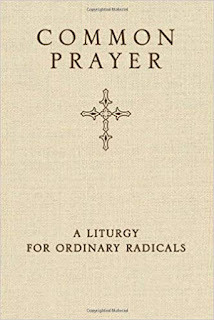The Daily Lectionary
TUESDAY, July 7, 2020
Song of Solomon 2:8-13; Genesis 29:1-14; Romans 3:1-8
(Revised Common Lectionary Year A)
Song of love
8 Listen! My beloved!
Look! Here he comes,
leaping across the mountains,
bounding over the hills.
9 My beloved is like a gazelle or a young stag.
Look! There he stands behind our wall,
gazing through the windows,
peering through the lattice.
10 My beloved spoke and said to me,
“Arise, my darling,
my beautiful one, come with me.
11 See! The winter is past;
the rains are over and gone.
12 Flowers appear on the earth;
the season of singing has come,
the cooing of doves
is heard in our land.
13 The fig tree forms its early fruit;
the blossoming vines spread their fragrance.
Arise, come, my darling;
my beautiful one, come with me.”
Jacob meets Rachel
29:1 Then Jacob continued on his journey and came to the land of the eastern peoples. 2 There he saw a well in the open country, with three flocks of sheep lying near it because the flocks were watered from that well. The stone over the mouth of the well was large. 3 When all the flocks were gathered there, the shepherds would roll the stone away from the well’s mouth and water the sheep. Then they would return the stone to its place over the mouth of the well.
4 Jacob asked the shepherds, “My brothers, where are you from?”
“We’re from Harran,” they replied.
5 He said to them, “Do you know Laban, Nahor’s grandson?”
“Yes, we know him,” they answered.
6 Then Jacob asked them, “Is he well?”
“Yes, he is,” they said, “and here comes his daughter Rachel with the sheep.”
7 “Look,” he said, “the sun is still high; it is not time for the flocks to be gathered. Water the sheep and take them back to pasture.”
8 “We can’t,” they replied, “until all the flocks are gathered and the stone has been rolled away from the mouth of the well. Then we will water the sheep.”
9 While he was still talking with them, Rachel came with her father’s sheep, for she was a shepherd. 10 When Jacob saw Rachel daughter of his uncle Laban, and Laban’s sheep, he went over and rolled the stone away from the mouth of the well and watered his uncle’s sheep. 11 Then Jacob kissed Rachel and began to weep aloud. 12 He had told Rachel that he was a relative of her father and a son of Rebekah. So she ran and told her father.
13 As soon as Laban heard the news about Jacob, his sister’s son, he hurried to meet him. He embraced him and kissed him and brought him to his home, and there Jacob told him all these things. 14 Then Laban said to him, “You are my own flesh and blood.”
After Jacob had stayed with him for a whole month.
The faithfulness of God
3:1 What advantage, then, is there in being a Jew, or what value is there in circumcision? 2 Much in every way! First of all, the Jews have been entrusted with the very words of God.
3 What if some were unfaithful? Will their unfaithfulness nullify God’s faithfulness? 4 Not at all! Let God be true, and every human being a liar. As it is written:
“So that you may be proved right when you speak
and prevail when you judge.”
5 But if our unrighteousness brings out God’s righteousness more clearly, what shall we say? That God is unjust in bringing his wrath on us? (I am using a human argument.) 6 Certainly not! If that were so, how could God judge the world? 7 Someone might argue, “If my falsehood enhances God’s truthfulness and so increases his glory, why am I still condemned as a sinner?” 8 Why not say—as some slanderously claim that we say—“Let us do evil that good may result”? Their condemnation is just!
Optional parts of the readings are set off in [square brackets.]
The Bible texts of the Old Testament, Epistle, and Gospel lessons are from The Holy Bible, New International Version®, NIV® Copyright ©1973, 1978, 1984, 2011 by Biblica, Inc.® Used by permission. All rights reserved worldwide.
The Daily Lectionary is a three-year cyclical lectionary. We are currently in Year A. Beginning with the first Sunday of Advent in 2020, we will be in Year B. The year which ended at Advent 2019 was Year C. These readings complement the Sunday and festival readings: Thursday through Saturday readings help prepare the reader for the Sunday ahead; Monday through Wednesday readings help the reader reflect and digest what they heard in worship. Revised Common Lectionary Daily Readings, copyright © 2005 Consultation on Common Texts. www.commontexts.org
The Daily Lectionary for TUESDAY, July 7, 2020
Song of Solomon 2:8-13; Genesis 29:1-14; Romans 3:1-8








